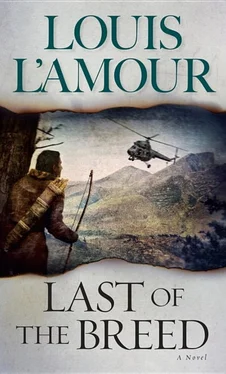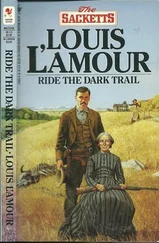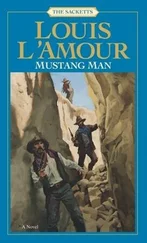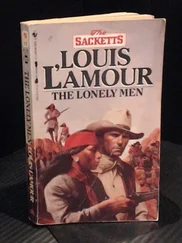Louis L'Amour - Last of the Breed
Здесь есть возможность читать онлайн «Louis L'Amour - Last of the Breed» весь текст электронной книги совершенно бесплатно (целиком полную версию без сокращений). В некоторых случаях можно слушать аудио, скачать через торрент в формате fb2 и присутствует краткое содержание. Город: New York, Год выпуска: 2010, ISBN: 2010, Издательство: Random House Publishing Group, Жанр: Триллер, Историческая проза, Приключения про индейцев, на английском языке. Описание произведения, (предисловие) а так же отзывы посетителей доступны на портале библиотеки ЛибКат.
- Название:Last of the Breed
- Автор:
- Издательство:Random House Publishing Group
- Жанр:
- Год:2010
- Город:New York
- ISBN:978-0-553-89935-1
- Рейтинг книги:3 / 5. Голосов: 1
-
Избранное:Добавить в избранное
- Отзывы:
-
Ваша оценка:
- 60
- 1
- 2
- 3
- 4
- 5
Last of the Breed: краткое содержание, описание и аннотация
Предлагаем к чтению аннотацию, описание, краткое содержание или предисловие (зависит от того, что написал сам автор книги «Last of the Breed»). Если вы не нашли необходимую информацию о книге — напишите в комментариях, мы постараемся отыскать её.
Last of the Breed — читать онлайн бесплатно полную книгу (весь текст) целиком
Ниже представлен текст книги, разбитый по страницам. Система сохранения места последней прочитанной страницы, позволяет с удобством читать онлайн бесплатно книгу «Last of the Breed», без необходимости каждый раз заново искать на чём Вы остановились. Поставьте закладку, и сможете в любой момент перейти на страницу, на которой закончили чтение.
Интервал:
Закладка:
Botev approached and then stopped, looking warily about. “You wished to speak to me?”
“Zamatev wants the American. Above all, he does not want Comrade Shepilov to reach him first. You will be out there among them, and I understand there is some feeling among some of them that might work for us.” He paused. “We must have the American. He is an enemy of the people.”
“Of course,” Botev replied, his tone slightly ironic.
“He cannot escape. Where he goes now, there are no hiding places. The country is too open.”
“You have been there?”
“No, no, of course not. But I have been told—”
“Do not believe all you are told.” He glanced around. “Nonetheless, I shall see what I can do.”
Ostap turned down the street, trying to think what else might be done. He was pleased that Kyra had come to him for help. She was bright, sharp, and hard, nobody to fool around with. Anybody who tried tricking her or playing games would get himself hurt. He had watched her operate from afar and knew what she had done. And now she was associated with Zamatev, of all people. There might come a day when he would need her influence.
He was on the outside of everything, living by his wits in a country that offered little room for it.
If they could just take that American, things would settle down again. He did not like Shepilov being here, nor the fact that because of him everybody was being very sharp and quick. There had been a dozen arrests made that would never have happened had the American not been hunted.
Back in the two rooms he shared with Katerina, he studied the situation in his mind. The American had no chance. No matter how skillfully he had evaded them until now, he was being neatly boxed in. The area in which he could move was narrowing down. There was more tundra, more open country, fewer trees. Further north, there were none until one reached the Anadyr Mountains.
Botev had no intention of helping either Shepilov or Zamatev. He had met the American but twice, but he liked him. He was a true man of the forest, and Botev could not believe whether he escaped or not would matter. Perhaps to Shepilov and Zamatev, but not to Russia. Of course, he knew little of what was at stake, yet what could one man do?
Ostap walked steadily, turned several corners, and then went to the edge of town. He took a lane between two yards filled with rusting machinery and went on into the woods.
Kyra was seated with Katerina when Ostap came in and threw his cap on the bed.
“I have told them,” he said. “I told them Zamatev would pay well to have him first.”
“I can promise that.”
“Good! I believe they will have him. After all, where can he go?”
She got to her feet. It was time she talked to Arkady. She had been too long away and, she reflected, too long in this place. She fastened her coat. “If you hear anything—?”
“Do not worry. You shall hear.”
She closed the door behind her and walked swiftly down the hall. She was about to turn into the street hallway when she saw the car parked in front. Quickly, she turned and ran down the hall to the rear door. There was a man standing there, a bulky man in a gray coat.
Swiftly she turned; nobody was in sight. She went to the end of the hall and opened the small door. It was not for nothing that she had been here before. The small door led to a storage room, where they kept coal to be burned. There was the small door through which the coal was brought in. It opened upon an alley.
She opened it slightly. Nobody was there. Across the alley was an old courtyard that wandered into another and then into a ramshackle building, long abandoned. Magadan was just such a place of empty spaces, structures hurriedly thrown up on somebody’s order or some bureaucratic whim.
Stegman was waiting at the helicopter when the taxi let her down. “Now!” she said. “At once!”
He asked no questions until they were in the air. “What is it?”
“Comrade Shepilov is making arrests,” she said, “but our work is done.”
Would they take Vanya? She hoped not. After all, what had been done? Yet she knew it was not necessary to have done something. It was enough to be suspected.
“Suvarov is with the soldiers,” Stegman said. “Somewhere in the north. I have a map if—”
“No. We will go back to Khabarovsk. Is there news of that woman? The Baronas woman?”
“None. When our men reached the cabin they were gone, gone for some time. The fires were out, the ashes cold. They have gone into the forest again, I believe.”
He picked up a distant peak and changed course a little. “Comrade Lebedev? There has been trouble.”
“Trouble?”
“Yes, it seems Comrade Bocharev has taken an interest in the Baronas question. He has been making inquiries. It was necessary to report this to Colonel Zamatev.”
She frowned. Bocharev? What did he have to do with this?
“Our informant, the man Peshkov, has disappeared. Nobody has seen him. The others have scattered. A few arrests have been made, but the man Zhikarev has vanished also.” Suddenly his tone was angry. “I do not know what is happening! There has been much slipshod work! These people should have been arrested at once! At once! And that Zhikarev—!”
If Baronas and his daughter had left Plastun Bay, they had gone down to the sea, or they would try to cross the border into China. The sea was out of the question. Nothing could get past that buffer zone and the strict watch kept over the waters of the Sea of Japan. Hence it had to be the border.
From her briefcase she took a map. A crossing on the Ussuri River would be closest. When they reached Khabarovsk, she would see what could be done. In fact, if it was all right with Arkady she would go herself. She would fly to Iman.
For the first time she began to have doubts. What if Arkady failed?
The thing with Pennington had not gone well. He had protested that his only expertise was in insecticides and assured them he would be glad to help in that area. In fact, he knew a good deal about the infestation of mosquitoes and black flies and would cooperate. He assured them they had taken the wrong man, that he would have enjoyed meeting the Admiral but that they had not come to his section at all. She knew none of the details of the questioning or the methods used, only that they had come up with nothing except that he did know a great deal about insecticides and was willing to help with their problems. As he was valuable in that respect, there might have been hesitation to go further with the questions, but she doubted that, knowing the Colonel.
To have that effort fail, and atop it the escape of a man whom they could not seem to recapture—
It looked bad for Arkady, for Colonel Zamatev.
They would say he was inept. That he was careless. That he had failed.
If he failed, she failed also. He was her ticket to Moscow, her door to the future.
Yet suppose they could recapture the American? Suppose there really had been something between the American and that Baronas woman? If they had her, she might be bait for a trap. She shook her head. No, it would not work. Of course not. The man would not—
But she had heard the Americans were romantic. Was this Red Indian so? Would he come back to try to save his girlfriend? If she could be taken, it was worth an attempt.
Of course, he would not. She told herself that, but she wondered.
Catch her first, and then think about it. Under questioning, she would tell all they needed to know. But how to get word to the American? Ostap would know how; he always knew such things.
But Ostap was a prisoner. Undoubtedly, he had been taken.
Only he had not. Like she herself, Ostap had escaped. He was free, and he had gone into the forest.
Читать дальшеИнтервал:
Закладка:
Похожие книги на «Last of the Breed»
Представляем Вашему вниманию похожие книги на «Last of the Breed» списком для выбора. Мы отобрали схожую по названию и смыслу литературу в надежде предоставить читателям больше вариантов отыскать новые, интересные, ещё непрочитанные произведения.
Обсуждение, отзывы о книге «Last of the Breed» и просто собственные мнения читателей. Оставьте ваши комментарии, напишите, что Вы думаете о произведении, его смысле или главных героях. Укажите что конкретно понравилось, а что нет, и почему Вы так считаете.












